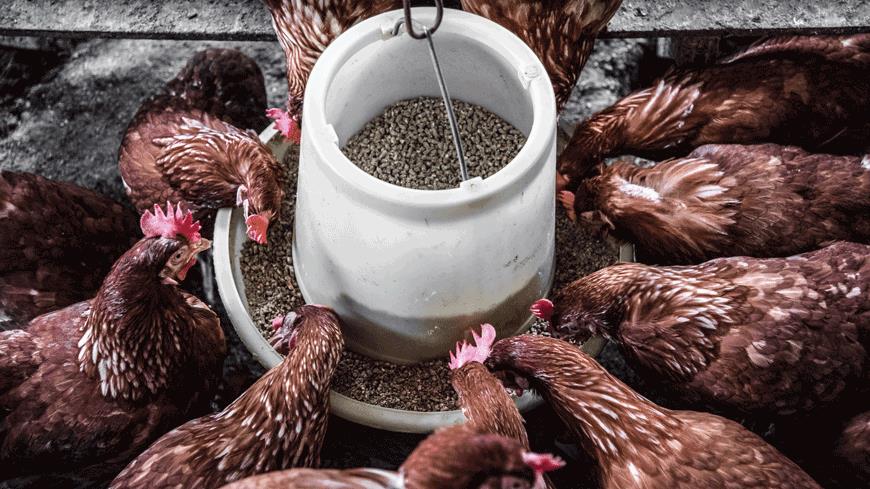(MENAFN- Jordan Times) AMMAN - The arrival of the cold season, combined with the global increase in fuel prices, is adding to the burdens of the poultry sector, increasing farmers' production costs by roughly 20 per cent, according to Hassan Abudaqar, board member of the Jordanian Poultry Producers Association.
“Heating systems in poultry farms, which either rely on gas or diesel, are run 24/7 during winter in order to keep poultry birds warm to maintain their health and production levels,” he told The Jordan Times.
The feed conversion ratio (FCR) for poultry, which calculates how well they convert feed intake into live weight, also decreases by around 5 points during winter,
Abudaqar
added.
This means for the amount of feed usually consumed by poultry there will be less meat produced during winter, he continued.
While these factors will increase production costs, the prices of chicken and eggs will remain stable, as they are determined based on supply and demand, according to Abudaqar.
He said that chicken is currently sold at a 20 per cent loss.
“Many are abandoning poultry farming because costs are exceeding revenues,” he added, noting that one chicken, which costs JD1.25 to raise, is sold for JD1.05.
He also pointed out that the 5 per cent sales tax is“burdening” the sector.
“It has become necessary to relieve farmers from this tax, at least temporarily to help them recover from the hike in feed prices,” he said.
One tonne of feed, which cost JD330, is now sold for JD500, according to Abudaqar, who noted that the rise in feed prices began following the outbreak of the Russia-Ukraine war in 2021.
He said that small-scale farmers are the most affected by these costs.
“They are selling their products at a loss to food giants and corporate farms,” which will eventually monopolise the market, he added.
Other issues facing the sector include smuggling and opening the door for imports, said Abudaqar.
He noted that Jordan is self-sufficient in terms of poultry and egg production.
Local farms produce around 800,000 chicken and four million eggs daily, while the needs of the Jordanian market amount to roughly 700,000 chicken and 3.5 million eggs, he added.
Investments in the poultry sector, which includes around 1.440 farms, amount to roughly JD1.5 billion. It also provides around 15,000 job opportunities across various governorates in the Kingdom, according to Abudaqar.
Moreover, he pointed out that truckers' ongoing strike directly impacts the poultry production sector.
“Poultry require a daily feed ration that is transported to farms through trucks,” he said, noting that the strike is causing a disruption in supply chains.
Truckers contacted by The Jordan Times said that the strike, which began last Monday due the rise in fuel prices, is still ongoing.
“The sky-high diesel prices are squeezing the entire transportation sector. We are on the verge of a crisis,” Naser Al Darbani, a trucker, told The Jordan Times.
Darbani pays JD200 for diesel and over JD100 for other costs to transport goods from Amman to Aqaba for a profit of around JD400.
“What's the point of working if I am not making an income? The strike is our only option at this stage,” he said.



















Comments
No comment